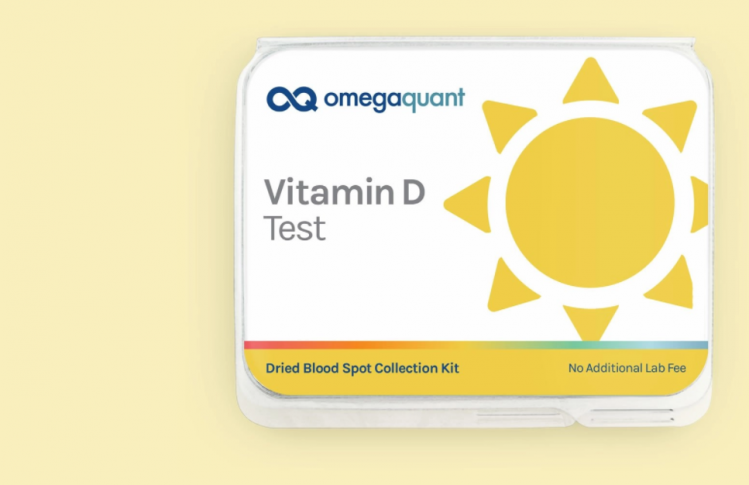Beyond bone health: OmegaQuant wants to expand distribution of vitamin D test in APAC

Known for creating convenient tests to measure omega-3 status in individuals, the vitamin D test works similarly, requiring only a finger stick and a couple drops of blood for analysis.
The kits are available to researchers, clinicians and the public, depending on the region.
In the US, consumers can purchase the vitamin D test directly on OmegaQuant’s online store.
In APAC, the vitamin D test is also available direct to consumers in Australia and New Zealand.
In other markets such as Hong Kong and Singapore, rather than sell direct to individuals, the firm prefers to workswith distributors and partners such as healthcare providers.
An email will be sent to the healthcare provider or patient within two to four weeks with the personalised results, detailing status of vitamin D levels, reference range, and recommendations on sunlight exposure, supplementation and dietary intake.
With healthcare providers, there are also opportunities to co-brand the test kits, as well as refer patients to OmegaQuant.
“APAC is a huge market for us and we’re working on having it available in as many countries as we can, although the process has been hampered by COVID-19, and regulatory issues in the Asia region,” research director, Dr Kristina Harris Jackson said.
US samples are sent to OmegaQuant’s lab in South Dakota for analysis. It also has labs in Adelaide, Australia to process samples coming from APAC, and a lab in Scotland to process samples from Europe.
Due to the COVID-19 pandemic, samples from APAC are now sent to the US instead, amid ongoing restrictions.
Once the situation eases, it hopes to be able to mail samples from APAC into Australia again.
Deficiency
The vitamin D test uses the dried blood spot collection method, and measures the plasma vitamin D concentrations.
Its omega-3 test uses red blood cells instead of plasma.
According to the Institute of Medicine, a serum level more than 20 ng/mL is considered sufficient and below 12.5 ng/mL is deficient.
From OmegaQuant’s perspective, vitamin D levels should be considered more from a “whole health” perspective than specific to bone health, hence recommends a higher optimal target of 30 ng/mL or above.
Data from the Osteoporosis Foundation showed most countries worldwide still face insufficient vitamin D levels. In APAC, New Zealand (15.9ng/mL), Malaysia (17.8 ng/mL), China (12.7 ng/mL), India (14/6 ng/mL) are insufficient levels.
Places like Australia (28 ng/mL) achieved sufficient levels, while Vietnam (36.8 ng/mL) achieved optimal levels.
However, most of these data are old, and either focus on the male or female population, so do not reflect the status of the entire population.
“People living in the same country, city or street have varying degrees of vitamin D levels. That's why testing is important, because not everybody requires supplementation or additional sun exposure,” Jackson said.
She was quick to add that there were many other factors that affect vitamin D levels in individuals, including seasonal variations, and use of sunblock.
“That personalisation and individualisation is far more important than the country wide level.”
Vitamin D levels can be corrected in as little as a few months by increasing sunlight exposure, taking supplements, or including salmon and herring, and even foods such as dairy and eggs that are fortified with vitamin D into the diet.
Jackson recommends testing vitamin D levels every three months or so.
Beyond bone health
As a key vitamin involved in calcium absorption, low levels of vitamin D have been to poor bone health and deficiencies have led to rickets in children and osteoporosis among older people.
However, new research on the role vitamin D has shown it plays in a range of health issues from cardiovascular disease, cognitive health, immune function to obesity.
OmegaQuant also develops test kits to measure omega-3 DHA in breast milk, during pregnancy, and for pets as well.
A vitamin B12 urinary test is in the works, although it will only be available in the US.
















